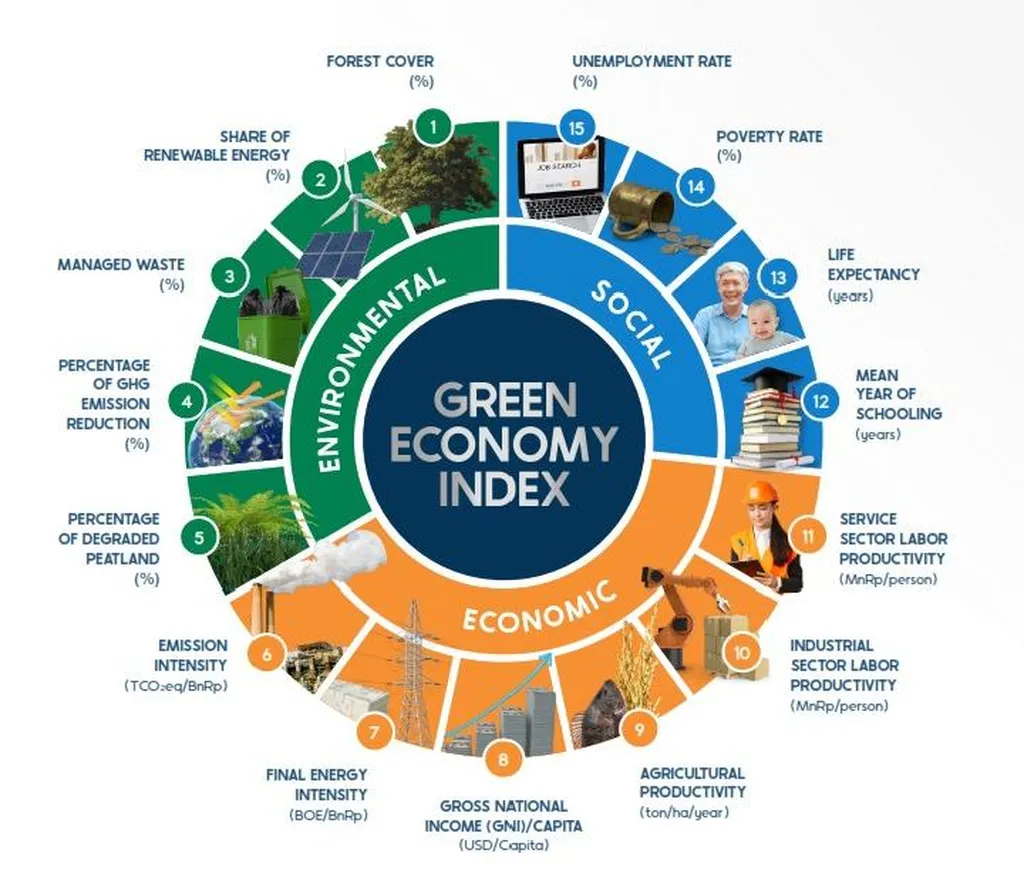In a world increasingly conscious of environmental sustainability, a recent study published in ‘Challenges and Issues of Modern Science’ has shed light on the potential of the green economy to drive economic growth and development within the Organization of Turkic States (OTS). The research, led by Gulshen Yuzbashiyeva from the Institute of Economics of the Ministry of Science and Education of the Republic of Azerbaijan, offers a comprehensive analysis of the green economy’s role in promoting sustainable development and economic prosperity in the region.
The study, which draws on data from international sources such as UNECE, TheGlobalEconomy.com, and national statistics of Azerbaijan, provides a comparative analysis of economic growth and green economy indicators across OTS countries. This includes Azerbaijan, Kazakhstan, Kyrgyzstan, Turkey, and Uzbekistan. The findings reveal that all OTS countries are actively pursuing green economy development, attracting investments, and creating favorable conditions in various sectors, including agriculture, transport, and tourism.
One of the key highlights of the research is the introduction of a green economy index, which helps identify barriers to economic growth and sustainable development. This index is a valuable tool for policymakers and investors looking to understand the structural shifts driven by the expansion of the green economy.
“Each OTS member has adopted a strategy for greening the economy and is gradually implementing its elements in alignment with national goals,” Yuzbashiyeva notes. This strategic alignment is crucial for the agriculture sector, which stands to benefit significantly from the green economy’s focus on sustainable practices and resource efficiency.
The study also addresses the green economy potential in Azerbaijan, highlighting the country’s efforts to integrate green economy principles into its economic policies. This includes the development of industrial zones, the promotion of eco-tourism, and the implementation of sustainable agricultural practices.
The research identifies key challenges and proposes recommendations for improving the implementation of green economy objectives. These recommendations are particularly relevant for the agriculture sector, which can leverage green economy principles to enhance productivity, reduce environmental impact, and create new economic opportunities.
As the world continues to grapple with the challenges of climate change and environmental degradation, the findings of this study offer valuable insights into the potential of the green economy to drive sustainable development and economic growth. The research not only provides a roadmap for OTS countries but also serves as a model for other regions looking to harness the power of the green economy.
In the words of Yuzbashiyeva, “The green economy is not just a concept; it is a practical approach that can transform economies and improve the quality of life for people.” This sentiment underscores the importance of the study and its potential to shape future developments in the field of sustainable development and economic growth.
The research, led by Gulshen Yuzbashiyeva from the Institute of Economics of the Ministry of Science and Education of the Republic of Azerbaijan and published in ‘Challenges and Issues of Modern Science’, offers a comprehensive analysis of the green economy’s role in promoting sustainable development and economic prosperity in the Organization of Turkic States (OTS).

